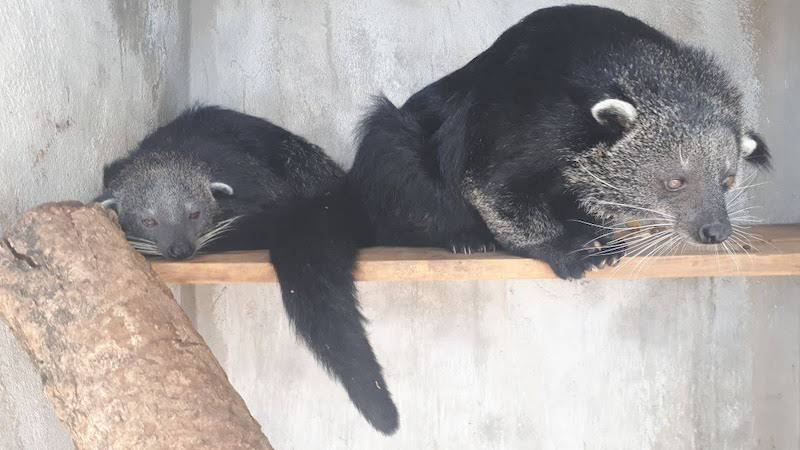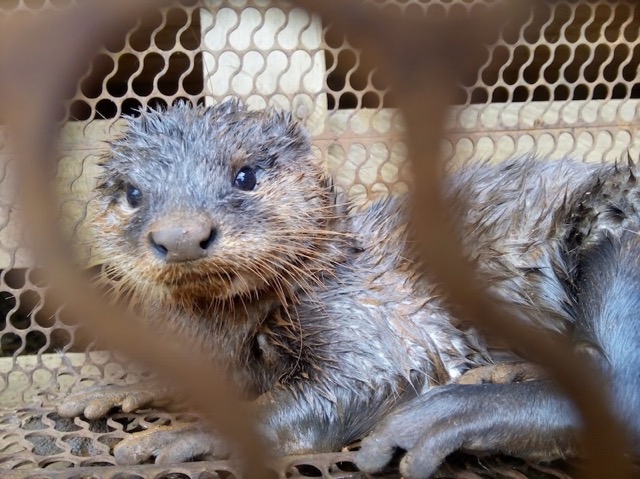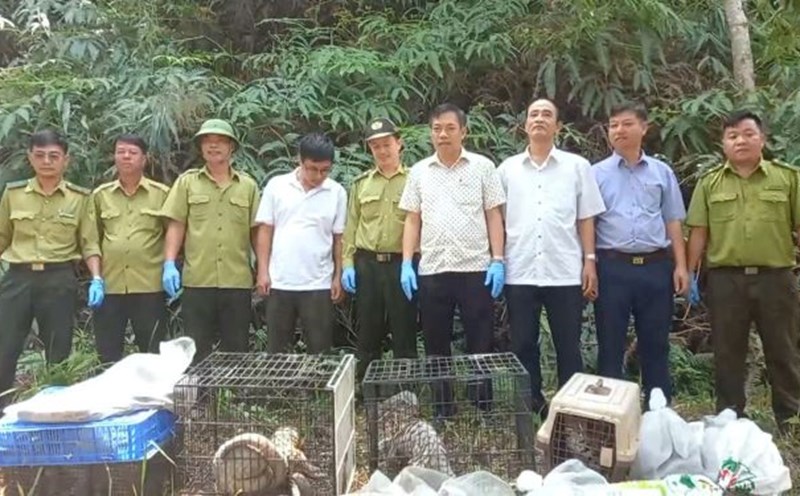10 years and 6 months in prison for illegal capture of wildlife species
According to information from the Center for Natural Education (ENV), on April 23, the People's Court of Hoc Mon district sentenced subject T.V.T to 10 years and 6 months in prison for illegally keeping endangered and rare wildlife species according to the provisions of Clause 3, Article 244 of the Penal Code 2015, amended and supplemented in 2017 ( "BLHS").
In November 2019, the Department of Environmental Crime Prevention (Ministry of Public Security) coordinated with competent authorities in Ho Chi Minh City to detect and arrest 57 wildlife individuals of all kinds, including many endangered, precious and rare species protected by Vietnamese law at the highest level - belonging to the List of endangered, precious and rare species prioritized for protection in Decree 160/2013/ND-CP, Group IB, List of endangered rare wildlife in Decree 06/2019/ND-CP and Appendix I CITES at the wildlife farming facility of subject T.V.T (Xuan Thoi Dong commune, Ho Mon district, Ho Chi Minh City).
These include species such as the goose (Neofelis nebulosa), spearhead (Catopuma temminckii), caterpillar (Arctictis binturong), cat ( prionailurus live live live), chrotogale owstoni, catfish (Aonyx cinereus), gray-legged parrots (Pelecanus philippensis), yellow-cheeked parrots (Hylobates) gabriellae, pavo muticus, large-cut parrots (Falco peregrinus) and piledopods (Hylobates pileatus).

According to T.V.T's testimony, most of these HDTVs were given to the subjects by some forest rangers in the South after being voluntarily handed over by the people and partly by the subjects floating on the market.
Subject T also provided a forest product list with confirmation from relevant forest rangers proving the origin of this wildlife. However, after verification, the police investigation agency determined that most of the cases of handing over wildlife records according to T's statements and shown in the forest product lists provided by this subject were not real.
The police investigation agency has also initiated a case of "Forgery in work" to clarify the responsibilities of the related forest rangers.
Using the shell of the breeding facility to "legalize" illegal wildlife
According to many sources, T.V.T is known as a large unit specializing in illegally buying, selling and transporting HDTVs from neighboring countries to Vietnam and then "legitizing" them at farms to sell domestically and internationally.
In addition to registering and being granted a breeding facility code under his name, the subject is also the owner of many breeding facilities under the name of a number of other individuals. These facilities are all licensed by the forest rangers to grow a large number of wildlife, including species that are assessed by scientists as unable to cause commercial farming such as large turtles.
According to Ms. Bui Thi Ha - Deputy Director of ENV, in fact, the use of shells to cover farming facilities to "legalize" illegal wildlife by this group is not an isolated phenomenon. Current management regulations are still inadequate, creating many loopholes for subjects who take advantage of this to smuggle HDVs from nature or from other illegal sources and illegally trade at commercial breeding facilities.

Therefore, ENV proposes that competent State agencies urgently issue a list of wildlife species that are allowed for commercial breeding because this will be an effective solution that both meets the goal of biodiversity conservation and contributes to orienting wildlife farming activities and ensuring sustainable livelihoods for people.
"The issuance of a list of wildlife species allowed for commercial exploitation and regular updating of this list will help reduce illegal trade, thereby eliminating the negative impacts of this activity on endangered wildlife species, especially those at risk of extinction.
This list also helps to significantly simplify procedures for both owners and management agencies. In the long term, this solution also needs to be combined with continuing to improve policies and improve the ability to enforce the law to ensure comprehensive management of commercial farming activities of wildlife for the sustainable benefit of the people and ensure a safe future for wildlife species" - Ms. Ha said.











